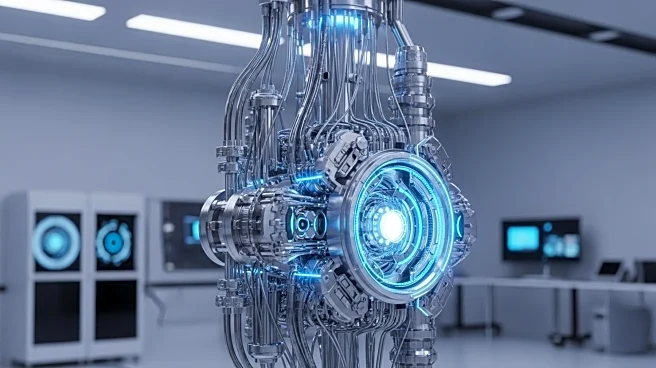What's Happening?
DACLab, a startup specializing in direct air capture technology, has announced a breakthrough in carbon dioxide removal from the atmosphere using significantly less electricity than its competitors. The company claims its technology requires only 1,500 kilowatt-hours per metric ton of CO2, compared to the industry standard of 2,000 kilowatt-hours. DACLab has been operating in stealth mode for four years and recently secured $3 million in seed funding. The technology, originally developed in partnership with Shell at TU Wien in Austria, separates the capture and release processes to minimize energy use. DACLab plans to deploy its units in Washington state and Kenya, aiming to further reduce energy consumption to less than 1,000 kilowatt-hours per metric ton.
Why It's Important?
The development by DACLab is significant in the context of global efforts to reduce carbon emissions, which have reached record levels. By lowering the energy requirements for direct air capture, DACLab's technology could make carbon removal more economically viable, potentially accelerating the adoption of carbon capture solutions. This innovation could benefit industries such as oil and gas, carbon project developers, and e-fuel producers, offering a more sustainable approach to managing carbon emissions. The reduced energy consumption also aligns with broader environmental goals, contributing to the fight against climate change.
What's Next?
DACLab plans to expand its operations by building larger units capable of capturing up to 5,000 metric tons of CO2 annually. The company aims to supply its technology to various industries, including oil and gas and e-fuel production. As DACLab continues to refine its technology, it may influence other companies in the carbon capture sector to adopt similar energy-efficient methods. The success of DACLab's approach could lead to increased investment and interest in direct air capture technologies, potentially reshaping the carbon capture industry.
Beyond the Headlines
DACLab's approach highlights the importance of innovation in addressing climate change challenges. By repurposing industrial designs for direct air capture, the company demonstrates how existing technologies can be adapted for environmental purposes. This development may encourage further research and collaboration between academia and industry to create more efficient carbon capture solutions. Additionally, DACLab's focus on transparency and realistic goals contrasts with some industry players who have made ambitious but unfulfilled promises, potentially setting a new standard for accountability in the sector.









